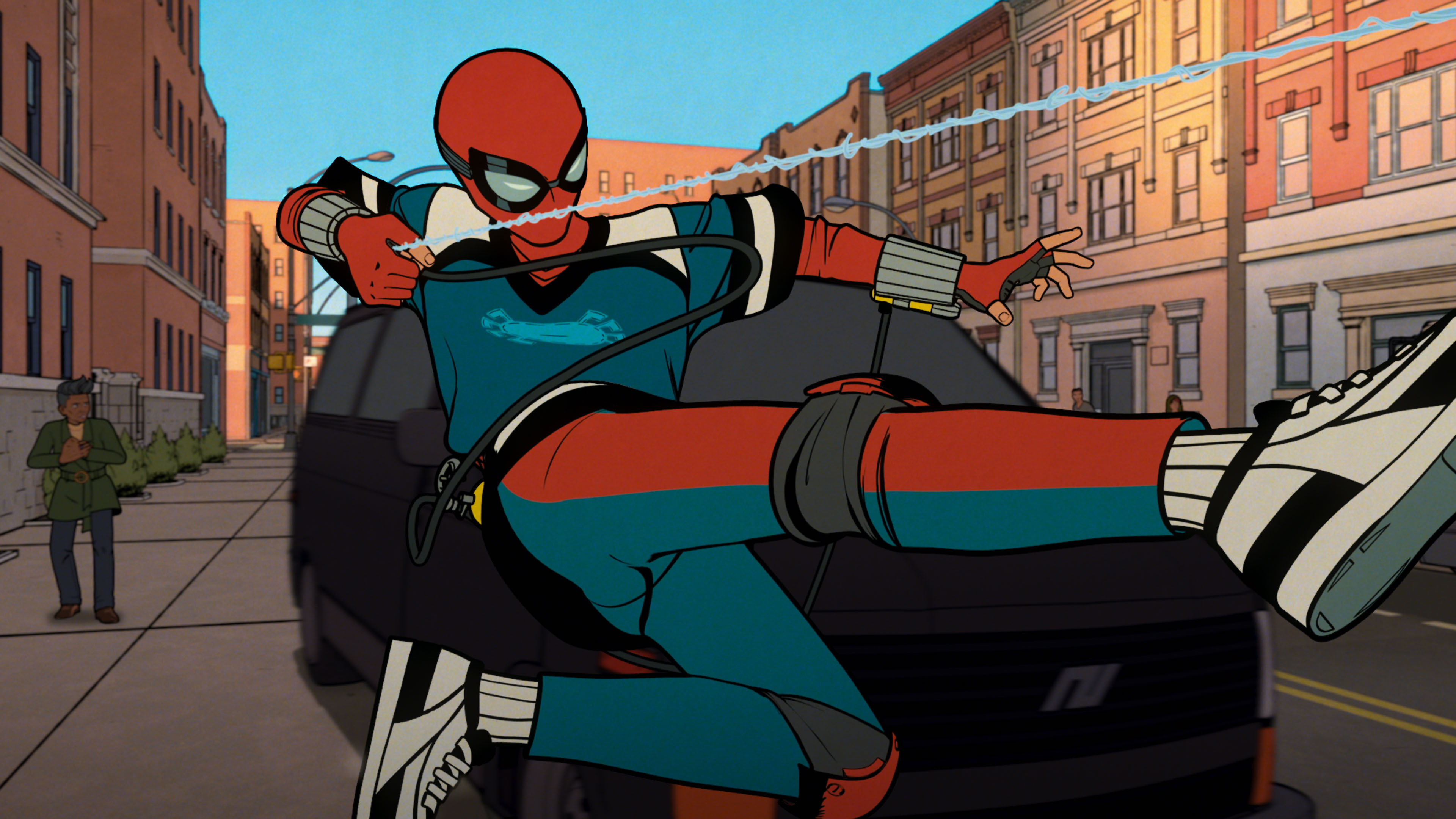The Pod Generation is an aesthetic in search of an idea.
Sophie Barthes’ low-key sci-fi movie about future fads in pregnancy and birth is impeccably designed and shot, with set and production design that feels like the natural cultural end of the pastel and pretty “Instagram chic” look that’s turned into a shorthand for bloodless, sterile artificiality in certain kinds of visual horror stories over the past decade. The film’s future tech is almost plausible, and its understanding of human nature and the push and pull around new technologies is spot-on. But it’s a film without a purpose or a punchline, a series of images that peters out with an unsatisfying whisper of an ending.
That said, there’s one solid reason to watch The Pod Generation, now that its brief theatrical run is over and it’s widely available on digital services: the central performances from Game of Thrones star Emilia Clarke and Chiwetel Ejiofor, as a couple navigating their choice to grow their first child in a trendy, pricey pod. The material they’re given is often slim and simple, but they lean into it with everything they can offer, and find the relatability in characters who feel more like symbols than like people.
Clarke and Ejiofor play Rachel and Alvy, a couple living in a blissfully pristine and packaged near future where just about everyone seems to be mildly to moderately high at all times. Everything in their world is curated and marketed to a fault: If someone wants to experience nature, they can rent a kind of moss-lined nap pod for a brief encounter with plants and fresh air. If they’re feeling unbalanced, there’s an AI therapist just up the block. People largely speak in pleasant undertones, as if they were all being paid by the minute on ASMR fulfillment channels.
When Rachel gets a notification that her waitlist number has come up at the Womb Center, a company that makes artificial gestation pods for fetuses, she seems excited only to the moderate, serene degree considered proper in her society, and within the culture of the ritzy corporation she works for. Alvy, on the other hand, is vocally horrified at the idea of growing their future child inside a high-tech pastel egg designed by a distinctly dystopian megacorp, led by a distinctively Jeff Bezos-meets-Elon Musk-type figure.
But his horror doesn’t last long. One of The Pod Generation’s biggest tripping points is the way it holds to its even-keeled quiet even during the biggest conflicts, which blow past quickly and mostly come before the movie’s midpoint. Alvy, a botanist who grows and loves real-life plants and doesn’t seem to be on the same mood-stabilizing drugs as everyone else in his world, is widely seen as an underpaid eccentric, and his insistence on “natural” gestation is just par for the course. He’s clearly out of step with the world: While Rachel sees their shared AI therapist as personal and comforting, he seems to see it the way the audience should, as a creepy, unsatisfying, invasive monstrosity. (It’s a wall-sized eyeball surrounded with flowers, spouting aphorisms and self-improvement babble.) But he quickly drops his objection so the story can move forward.
:no_upscale()/cdn.vox-cdn.com/uploads/chorus_asset/file/24907281/Therapist.png)
There are a lot of thorny topics at work in the movie’s questions around artificial birth. The Womb Center is clearly commodifying and twisting feminism to sell Rachel on the pod process. Its sales pitch emphasizes her right to choice, self-determination, and continuing her career uninterrupted, while trying to get her to pay exorbitant prices to let the Center control everything about her future child’s creation and development.
Alvy, on the other hand, is politely discouraged from interfering, with the implied criticism that he’s impeding technological process, being a Luddite, and trying to control his wife. Ultimately, the Womb Center reps suggest his input into the child isn’t important, since the theoretical baby wouldn’t be growing in his body, and disrupting his high-paying business career. Meanwhile, both prospective parents are being pushed into something they’re dubious about, with the implication that everyone else is doing it (and can afford it), and that any resistance is probably going to harm their future child. It’s a chilling sci-fi version of back-seat parenting, combined with the late-stage capitalism urge to turn absolutely every aspect of life into a sellable, scalable product.
But The Pod Generation largely sails by those issues without coming to grips with any of them. There’s some occasional wry humor in Alvy’s frustration with that unsettling AI therapist, or in Rachel and Alvy watching the on-screen artificial conception of their pod-baby, a mechanical and microscopic process they have no connection to, but are clearly expected to enthuse over.
:no_upscale()/cdn.vox-cdn.com/uploads/chorus_asset/file/24907290/Hug.png)
There’s a similarly muted tension between the blissful, dreamlike acceptance everyone else brings to the unnerving Womb Center, and the frustrating questions and doubts Rachel and Alvy have with it and with each other. The movie never brings any cutting insight to these ideas or relationships, though. It often feels like a particularly slick satirical ad for plastic womb-eggs, a sketch-comedy idea that doesn’t explore any deeper than its shiny surface.
But the leads give all these elements a much more personal edge. Rachel keeps a tighter rein on her emotions and works harder not to show her doubts, which leaves Clarke without a lot of room to express emotion. She’s doing the work of portraying layers of confusion and control in someone who doesn’t want to let anything slip, but her character’s control hems her in.
Ejiofor, who’s specialized in projecting aching, soulful humanity going all the way back to his 2002 breakthrough Dirty Pretty Things, gets a lot more room to show movement, from a level of frustration that’s unusual in his society to a gradual fascination with his pod-baby, and a growing connection to his placid and distant wife. This movie should be about Rachel and Alvy’s connection with their society and its constraints, but it lands best in the subtler portrait of their connection with each other, and how their pod pregnancy complicates that, pushing them alternately together and apart.
The Pod Generation isn’t going to leave anyone with the dread and emotional impetus of a hard-hitting, scary sci-fi future, or the uplift and catharsis of a well-observed satisfying one. It’s more of a placid puzzler than a moving experience, though there’s certainly plenty to see on screen, and plenty to recognize in the commercialization it lampoons. But like so much science fiction, it has to find its heart in the people rather than the world around them. In that way, at least, it sticks the landing.
The Pod Generation is available for rental or purchase on Amazon, Vudu, and other digital platforms.







